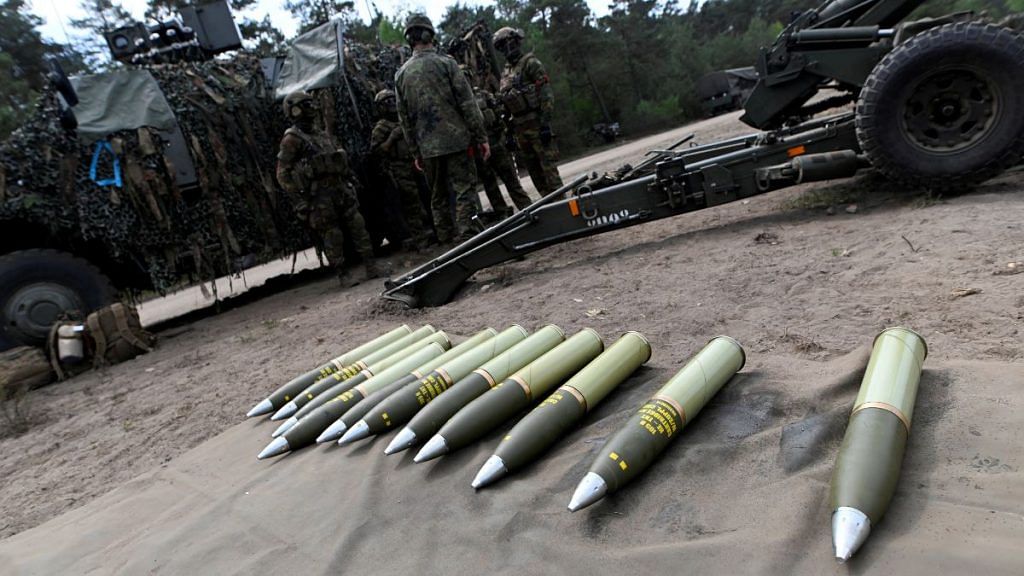Brussels: NATO said on Monday it will increase targets for stockpiling ammunition as Kyiv is burning through shells much faster than Western countries can produce them and after a year of conflict in Ukraine has left allied stocks badly depleted.
“The current rate of Ukraine’s ammunition expenditure is many times higher than our current rate of production,” NATO Secretary-General Jens Stoltenberg told reporters ahead of a two-day meeting of the alliance’s defence ministers in Brussels.
NATO planned to increase its targets for munitions stockpiles, Stoltenberg said, adding that the alliance had completed a survey of remaining stocks.
Reuters, citing a NATO source, reported earlier that the alliance was expected to raise stockpiling targets.
The West needed to ramp up production as the waiting time for large-calibre ammunition has increased to 28 months from 12 months, Stoltenberg said.
Even before Russia’s invasion of Ukraine on Feb. 24 last year, many NATO countries fell short of meeting the alliance’s stockpiling targets, as officials considered wars of attrition with large-scale artillery battles a thing of the past.
But the pace of deliveries to Ukraine, where Kyiv’s troops are firing up to 10,000 artillery shells daily, has drained Western inventories and exposed holes in the efficiency, speed and manpower of supply chains.
“If Europe were to fight Russia, some countries would run out of ammunition in days,” a European diplomat told Reuters.
Stoltenberg said higher munitions supplies were essential to ensuring the alliance can keep supporting Ukraine, while protecting every inch of its own territory.
“Almost one year since the invasion, President Putin is not preparing for peace, he is launching new offensives,” Stoltenberg noted.
“It is clear that we are in a race of logistics. Key capabilities like ammunition, fuel, and spare parts must reach Ukraine before Russia can seize the initiative on the battlefield. Speed will save lives.”
Asked whether he saw Russia’s latest thrusts in Ukraine as the start of a major offensive experts originally had been expecting in spring, Stoltenberg said it was the start.
“What we are seeing President Putin doing now is sending thousands and thousands of more troops, accepting a very high rate of casualty, taking big losses but putting pressure on the Ukrainians,” he noted.
“What Russia lacks in quality, they try to compensate in quantity.”
When NATO defence ministers meet in Brussels on Tuesday and Wednesday they will also kick off a discussion on adapting the alliance’s target for its members to spend 2% of their GDP on defence.
Several allies see this target as too low, given there is war raging in Europe, and are pushing for higher military spending, while others such as Germany are far away from meeting even the 2% goal.
A decision is expected at the NATO summit in Lithuania in July.
The Brussels meeting will be preceded by a gathering of the so-called Ramstein group, dozens of countries providing arms to Kyiv. NATO defence ministers will be joined by their Ukrainian counterpart Oleksii Reznikov.
(Reporting by Sabine Siebold in Berlin, Andrew Gray in Brussels and Bart H. Meijer and Charlotte Van Campenhout in Amsterdam; Editing by Benoit Van Overstraeten, Shounak Dasgupta and Mike Harrison)
Disclaimer: This report is auto generated from the Reuters news service. ThePrint holds no responsibilty for its content.
Also read: Dutch F-35s intercept three Russian military aircraft near Poland – Netherlands’ defence ministry
